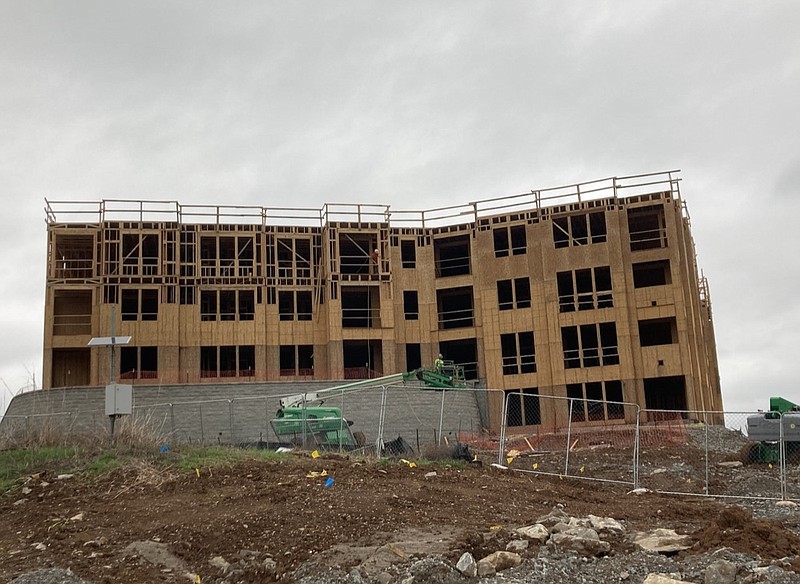A state plan to roll back long-standing regulations for construction site runoff is drawing opposition from environmental groups that fear Tennessee creeks and streams will suffer.
Stormwater discharge from construction sites - rainwater that sweeps soil or other particles off-site - can flow into nearby waterways, often creating silt deposits that affect aquatic life and water quality.
Historically, silt has been one of the primary pollutants in Tennessee's waterways, a paper explaining the proposed new rules from the Tennessee Department of Environment and Conservation, or TDEC, said. Just one millimeter of soil spread over a one-acre site can weigh 5 tons, and "even a minor uncontrolled construction activity can cause major impairment in surface water" through runoff, the paper said.
Nevertheless, TDEC is proposing significant changes in state environmental oversight of builders, developers, property owners, contractors and subcontractors in controlling runoff.
Construction sites are prohibited from disturbing 50 acres of property at one time unless they have applied for and received a special stormwater permit - a process that requires public notice and opportunity for comment. The proposed new rules would eliminate that permit requirement.
Smaller construction site disturbances - fewer than 50 acres - now require twice-weekly stormwater monitoring inspections. The proposed new rules would keep the twice-weekly inspection requirement in place at sites with 50 or more acres undergoing construction activity but reduce required inspections to once per week for smaller acreages.
On Tuesday, during a meeting to elicit public feedback on the proposal, residents and environmental advocates were the only speakers and strongly opposed the plan.
"Anybody with experience in construction knows that designs are easy to do but things don't get built that way unless there is oversight and inspections," said Dennis Gregg, director of the Crossville, Tenn.-based Obed Watershed Community Association.
Gregg called the plan a "mistake" and said the proposed new rules could run afoul of the federal Clean Water Act, which contains prohibitions on weakening state environmental regulations.
Eliminating inspection requirements of fewer-than-50-acre construction projects "could have a profound impact downstream on the river if things weren't designed and properly built," said Buddy Koontz, a retired engineer representing the Tennessee Scenic Rivers Association.
"These activities have a real effect on the raw water for drinking water plants," he said.
Paul Davis, a former director of TDEC's water pollution control division, called the proposal "puzzling" and said it caught officials who oversee municipal separate storm sewer systems, known as MS4s, by surprise. Under the current rules, construction site operators are required by TDEC to comply with any additional local stormwater management rules required by MS4s, which operate in areas with a population of 100,000 or more. TDEC's requirement underscored the obligation of construction companies wishing to get, and keep, a TDEC permit to comply with local authorities.
"How is it that the 2021 rational document surprised MS4s?," Davis asked. "In 2016, state permits backstopped MS4s, but in 2021 the message is, 'MS4s, you're on your own.'"
Cindy Whitt, a Tennessee resident, said she wasn't an expert, but what she had seen of runoff management in local subdivision construction sites was "shocking."
"I think fewer inspections would make it worse," she said. "I just cannot believe we would allow this to happen. With increased urban development, it's only going to get worse. I just hope that we can consider the future of Tennesseans and the future of our environment and do what we need to do to protect things."
Vojin Janjic, manager of TDEC's water-based system unit, said the plan was, in part, an effort to streamline the permitting process and based on TDEC's longtime experience with regulating stormwater runoff. Janjic said reducing inspection requirements at smaller sites to once per week was adequate based on that experience and in line with federal standards.
TDEC will continue to collect written comments on the proposed new rules until July 9. Based on feedback, Janjic said, the agency planned to republish new versions of the rules, but he did not specify what revisions would be made.
Read more at TennesseeLookout.com.
